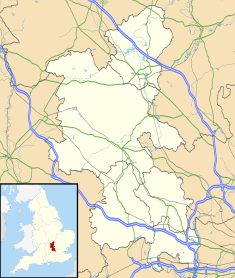
Amersham is a market town and civil parish in Buckinghamshire, England, in the Chiltern Hills, 27 miles (43 km) northwest of central London, 15 miles (24 km) south-east of Aylesbury and 9 miles (14 km) north-east of High Wycombe. Amersham is part of the London commuter belt.
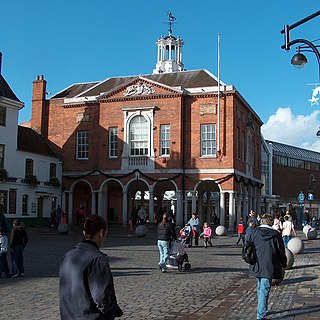
High Wycombe, often referred to as Wycombe, is a market town in Buckinghamshire, England. Lying in the valley of the River Wye surrounded by the Chiltern Hills, it is 29 miles (47 km) west-northwest of Charing Cross in London, 13 miles (21 km) south-southeast of Aylesbury, 23 miles (37 km) southeast of Oxford, 15 miles (24 km) northeast of Reading and 8 miles (13 km) north of Maidenhead.

Chesham is a market town and civil parish in Buckinghamshire, England, United Kingdom, 11 miles (18 km) south-east of the county town of Aylesbury, about 26 miles (42 km) north-west of central London, and part of the London commuter belt. It is in the Chess Valley, surrounded by farmland. The earliest records of Chesham as a settlement are from the second half of the 10th century, although there is archaeological evidence of people in this area from around 8000 BC. Henry III granted a royal charter for a weekly market in 1257.

Wendover is a town and civil parish at the foot of the Chiltern Hills in Buckinghamshire, England. It is situated at the point where the main road across the Chilterns between London and Aylesbury intersects with the once important road along the foot of the Chilterns. The town is 35 miles (56 km) north west of London and 5 miles (8 km) south east of Aylesbury.
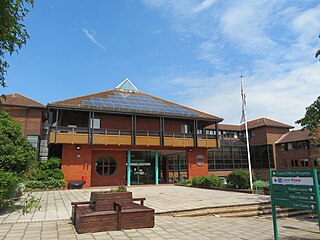
Chiltern District was a local government district of Buckinghamshire in south-central England from 1974 to 2020. It was named after the Chiltern Hills on which the region sits.

Amersham Rural District was a rural district in the administrative county of Buckinghamshire, England from 1894 to 1974, covering an area in the south-east of the county.

The town of Chesham formed a local government district in the administrative county of Buckinghamshire, England, from 1884 to 1974. It was administered as a local government district from 1884 to 1894, and as an urban district from 1894 to 1974.

Buckinghamshire Council is the local authority for Buckinghamshire (district), a non-metropolitan county in England. It is a unitary authority, performing both county and district-level functions. It was created on 1 April 2020, replacing the previous Buckinghamshire County Council and the councils of the four abolished districts of Aylesbury Vale, Chiltern, South Bucks, and Wycombe. The territory of the Council is about four-fifths of Buckinghamshire and has about two-thirds of its population.

Hungerford Town Hall is a municipal building in the High Street, Hungerford, Berkshire, England. The town hall, which is the meeting place of Hungerford Town Council, is a Grade II listed building.
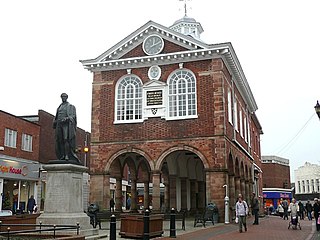
Tamworth Town Hall is a municipal building in Market Street, Tamworth, Staffordshire, England. The town hall, which is the meeting place of Tamworth Borough Council is a Grade II* listed building.
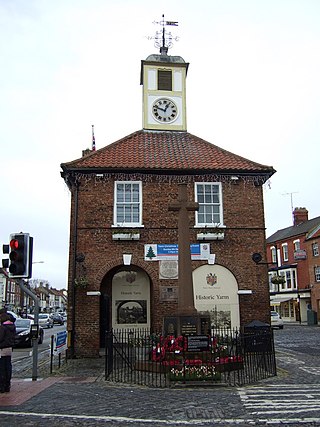
Yarm Town Hall is a municipal building in the High Street in Yarm, North Yorkshire, England. The structure, which is the meeting place of Yarm Town Council, is a Grade II listed building.
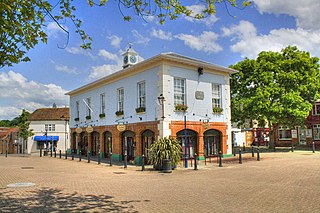
Alton Town Hall is a municipal building in the Market Square in Alton, Hampshire, England. The structure, which is the meeting place of Alton Town Council, is a Grade II listed building.

Marlow Town Hall is a municipal building in the Market Square, Marlow, Buckinghamshire, England. The structure, which was used as a public events venue, is a Grade II* listed building.

Haslemere Town Hall is a municipal building in the High Street, Haslemere, Surrey, England. The structure, which serves as the meeting place of Haslemere Town Council, is a Grade II listed building.

Tring Market House is a municipal building in the High Street, Tring, Hertfordshire, England. The structure, which is the meeting place of Tring Town Council, is a Grade II listed building.

Poole Guildhall is a municipal building in Market Street, Poole, Dorset, England. The guildhall, which is used as a register office and a venue for weddings and civil partnership ceremonies, is a Grade II* listed building.
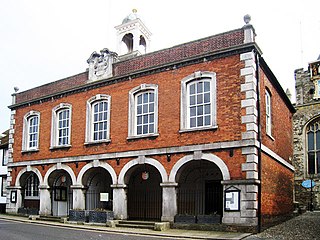
Rye Town Hall is a municipal building in Market Street, Rye, East Sussex, England. The building, which is the meeting place of Rye Town Council, is a Grade II* listed building.

Stockbridge Town Hall is a municipal building in the High Street in Stockbridge, Hampshire, England. The structure, which is used as the meeting place of Stockbridge Parish Council, is a Grade II* listed building.

Garstang Town Hall is a municipal building in the High Street in Garstang, Lancashire, England. The structure, which currently accommodates two shops and a Royal British Legion Club, is a Grade II listed building.

The Old Town Hall is a municipal building in The High Street in Steyning, West Sussex, England. The building, which was used as a courthouse and a public events venue, is a Grade II listed building.

